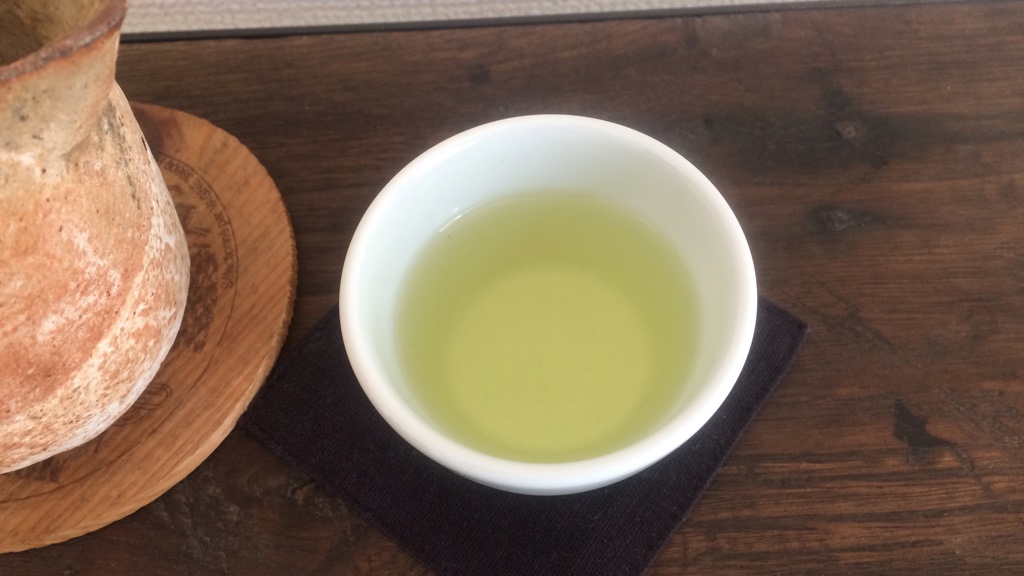June 2017 – Shincha from Shizuoka
This is the second Shincha (新茶) of the year! It comes from the prefecture of Shizuoka (静岡).
Shincha
We selected another Shincha (新茶), from Shizuoka (静岡) this time. Shizuoka is very famous for green tea in Japan. The prefecture of Shizuoka instantly reminds us of green tea, and of Mount Fuji (富士山).
The producer for this tea is Mikasaen located in the city of Kakegawa (掛川), located in the south of Shizuoka. We call the tea for this region Kakegawacha (掛川茶). In particular, it is famous for the type of Fukamushi Sencha (深蒸し煎茶) which is steamed, taking much longer (2 or 3 hours) than general Sencha. This tea has a delicate bitterness and a sweet taste in spite of having the color of dark green.
Primeurs Maniacs
Since a long time ago, Japanese people appreciate primeurs, “Hatsumono (初物)” in Japanese, literally the things coming from the first season of the year, such as vegetables, fruits or seafood. However why do Japanese people love primeurs? Because we think that these primeurs attract good luck and promise us a long life.
We think that primeurs have a sort of pure energy and vitality. That’s why we believe that we absorb this new vitality by consuming primeur produces. In Japan, there’s a proverb “a primeur is worth 75 days”, which means that when we eat a primeur, we extend our life for 75 days. Therefore, if we drink Shincha, which is harvested on the 88th day counted from the first day of spring (February 4th for the year 2017), we can maintain a state of perfect health and live a long life.
In particular, there are 4 precious primeurs in Japan: bonito, salmon, eggplant and a mushroom called “Matsutake” (a kind of truffle). For bonito, there’s a proverb: “Even if need to pawn your wife, it's better to eat primeur bonito”. In a haiku describing the beginning of summer: “New fresh green for your eyes, cuckoo in the mountain and the first bonito in the year“.
For eggplants, we say that you shouldn’t give an eggplant of autumn (primeur) to your daughter-in-law. Because according to the cliché, mother-in-laws do not get along with their daughter-in-laws, so why should they give a delicious eggplant to their unwelcome daughter-in-laws (who took away their sons)? Another famous proverb: “Mount Fuji for the first, a falcon for the second and an eggplant for the third to have a dream for the first day of the year”. This is the reason why Japanese people love the French wine called "Beaujolais Nouveau": it's not that good, but it's a primeur...

Brewing Shincha
The amount of tea leaves should be adapted according to the desired taste: it should be around 2 tablespoons (9 grams) of Shincha for 210ml (7oz) of spring water. The first infusion should last 60 seconds in water at 80ºC (180ºF). The second infusion should be done for 20 seconds at 90ºC (190ºF). The third infusion should be done very briefly in boiling water.
If you have questions about Japanese teas, please do not hesitate to contact us!
